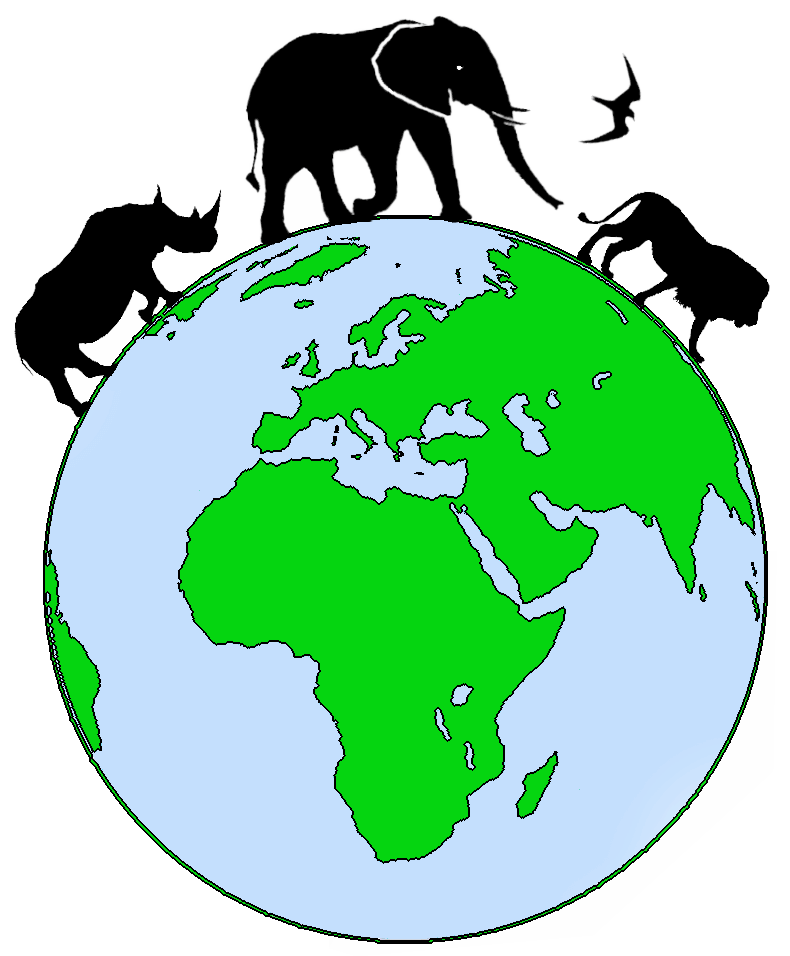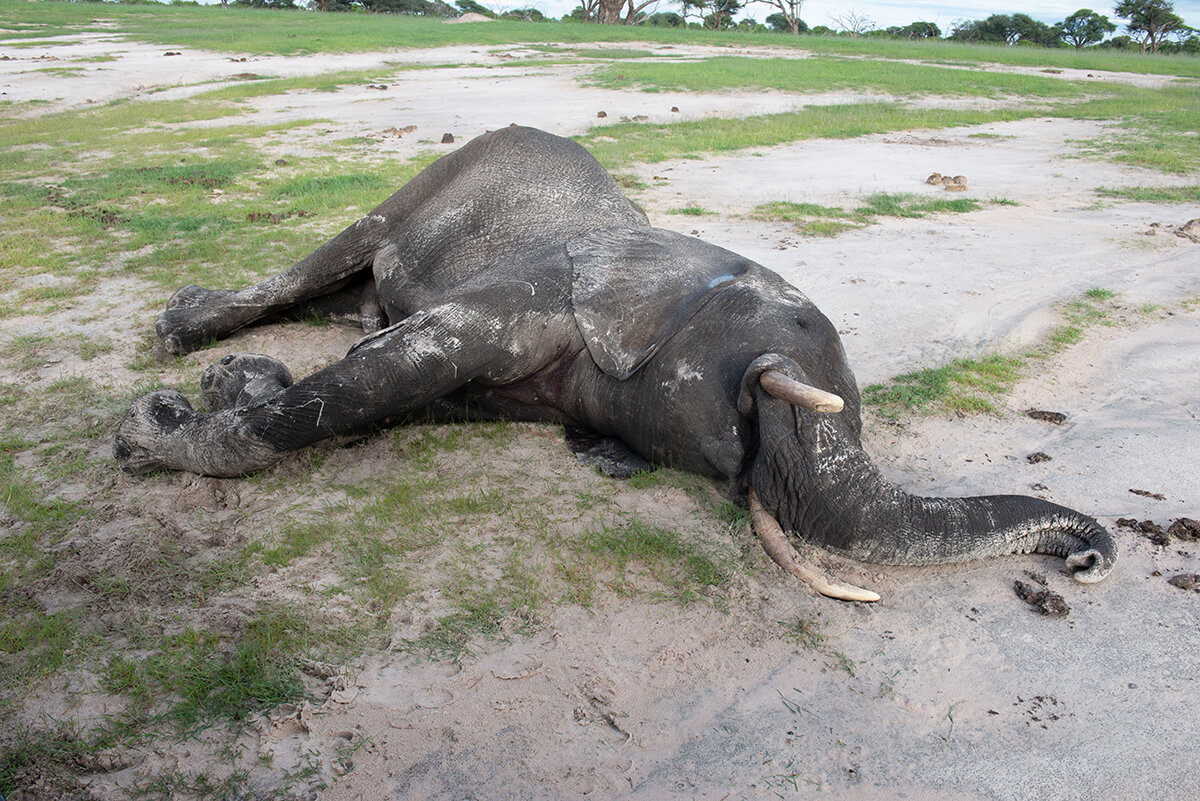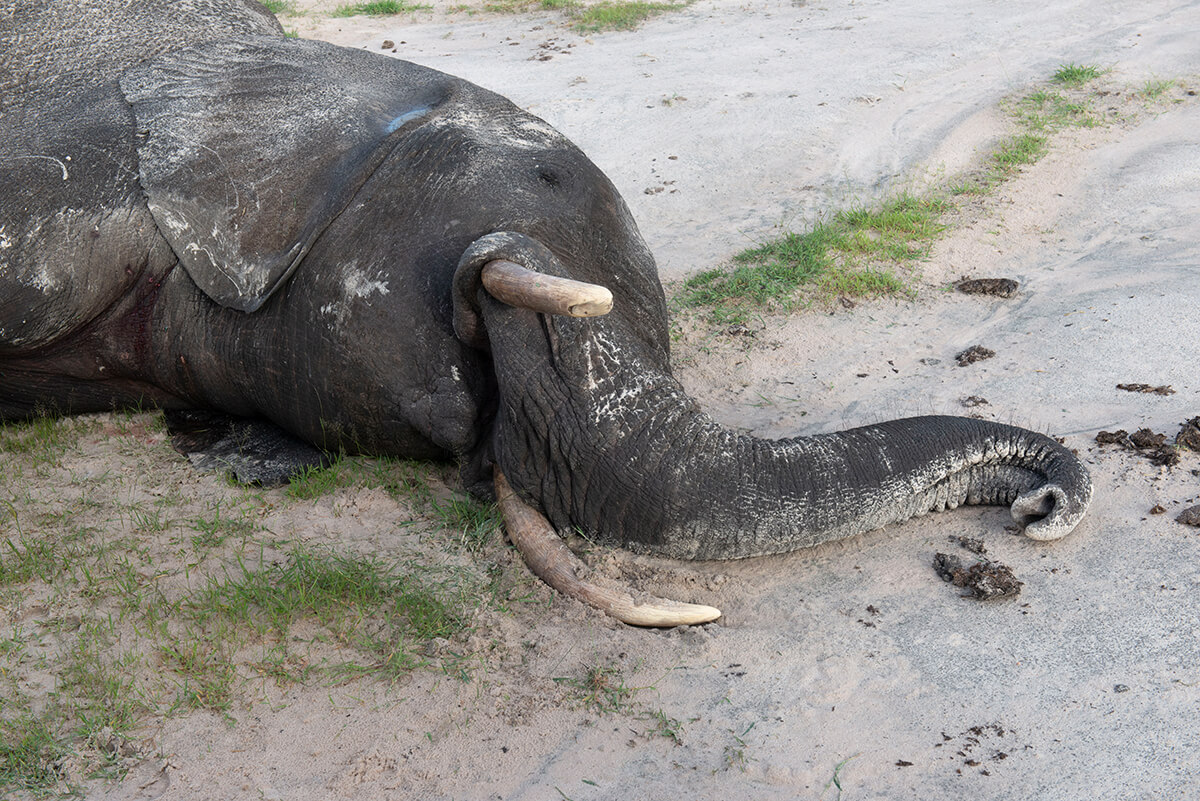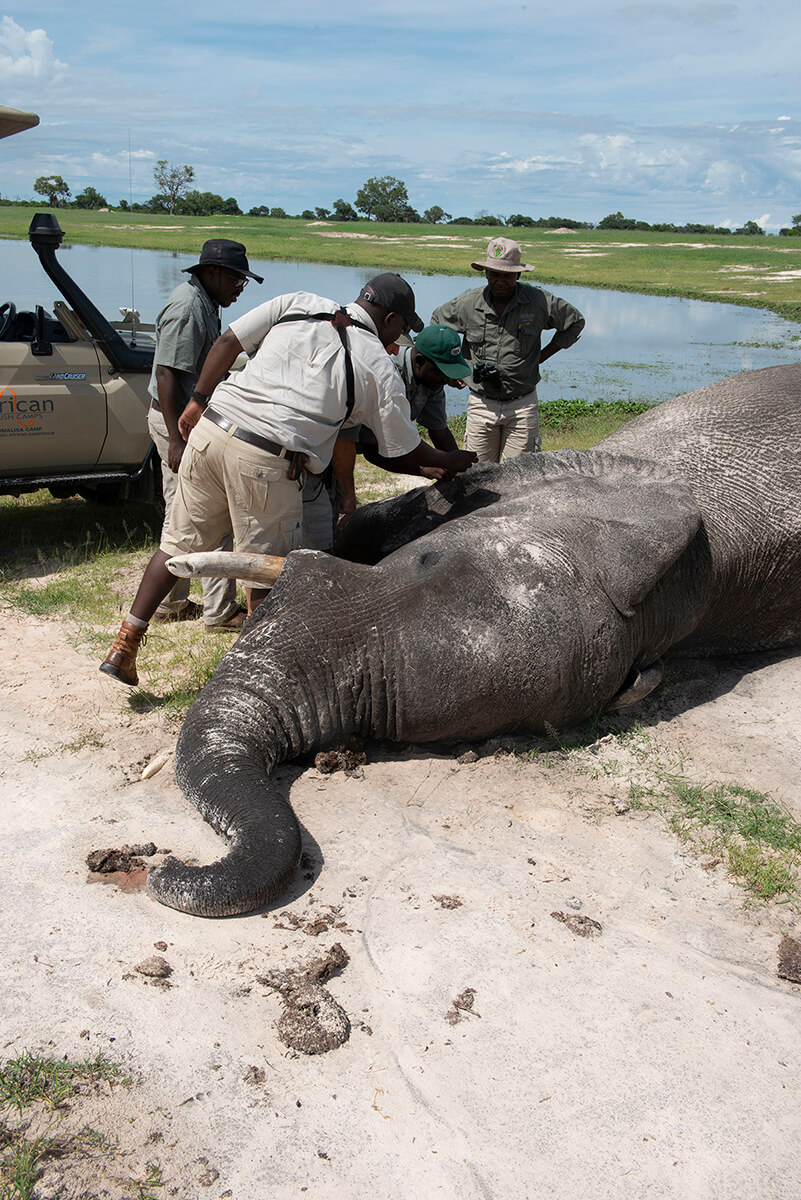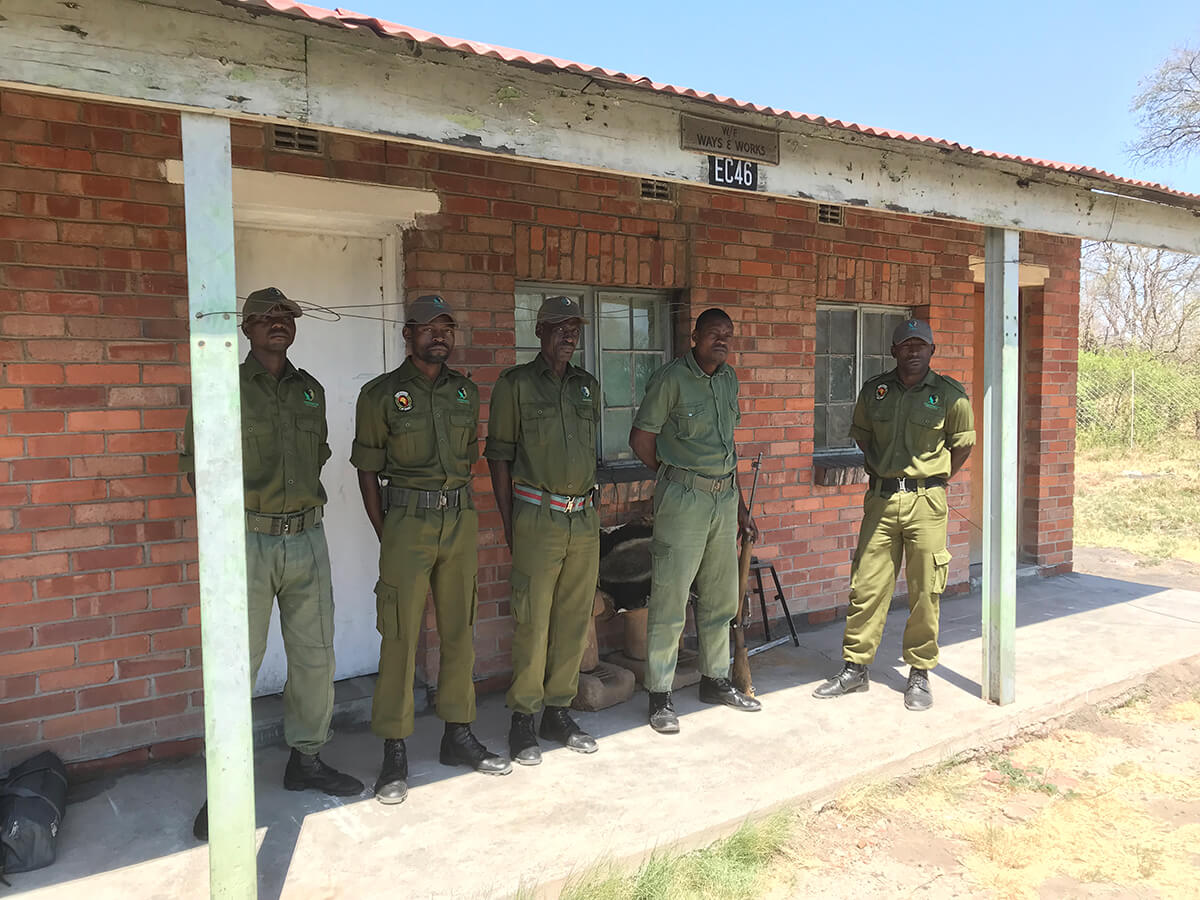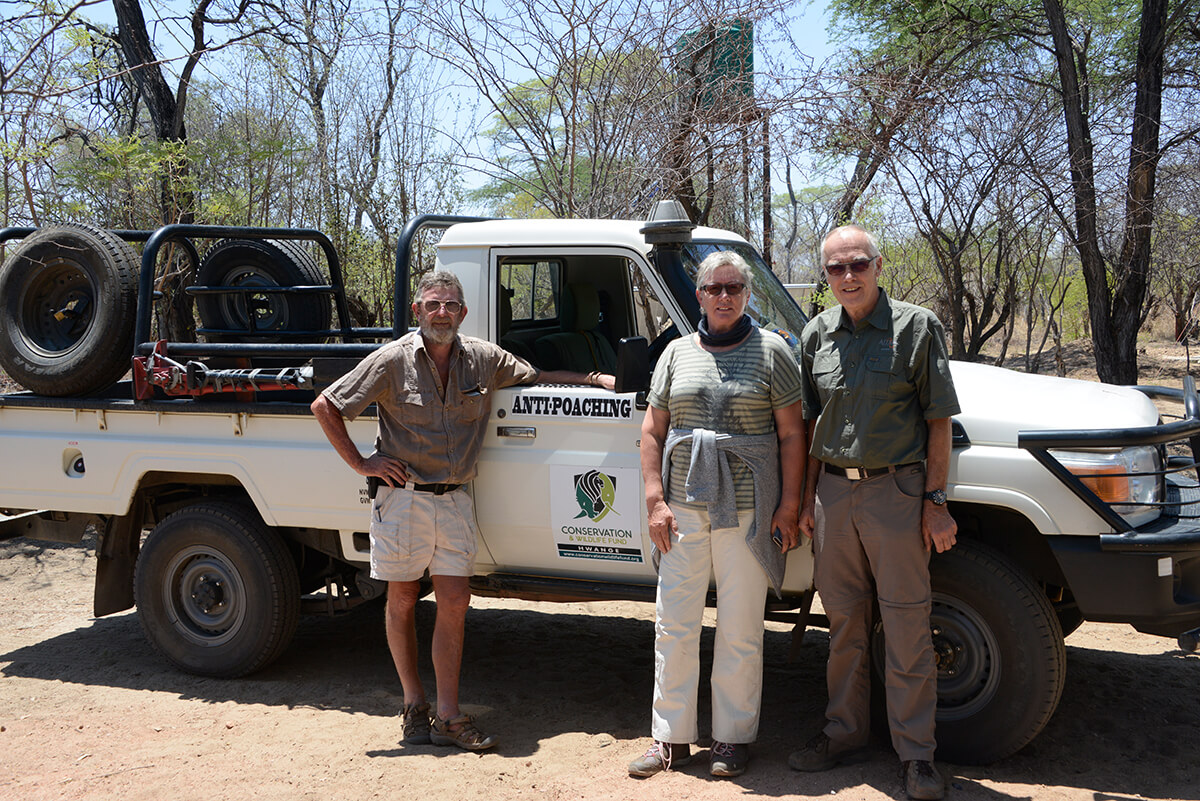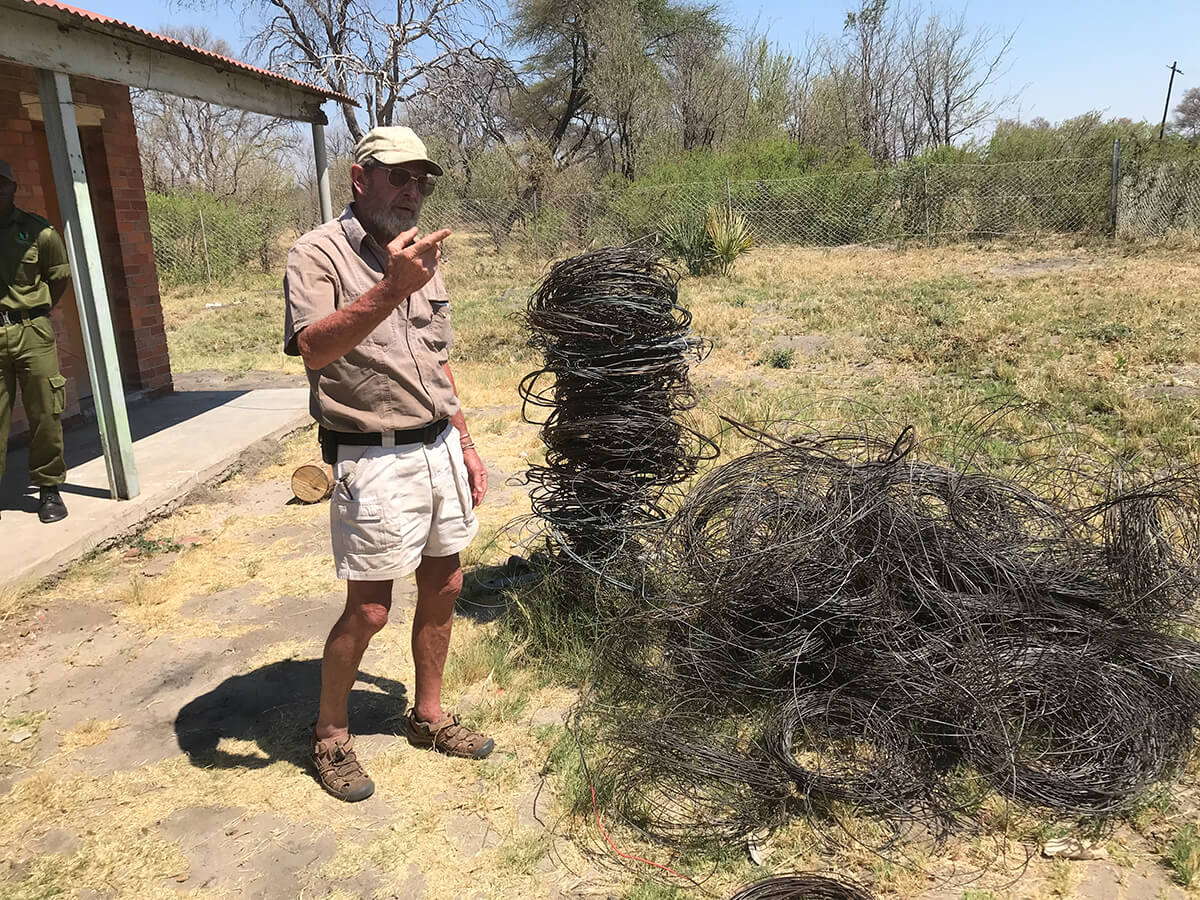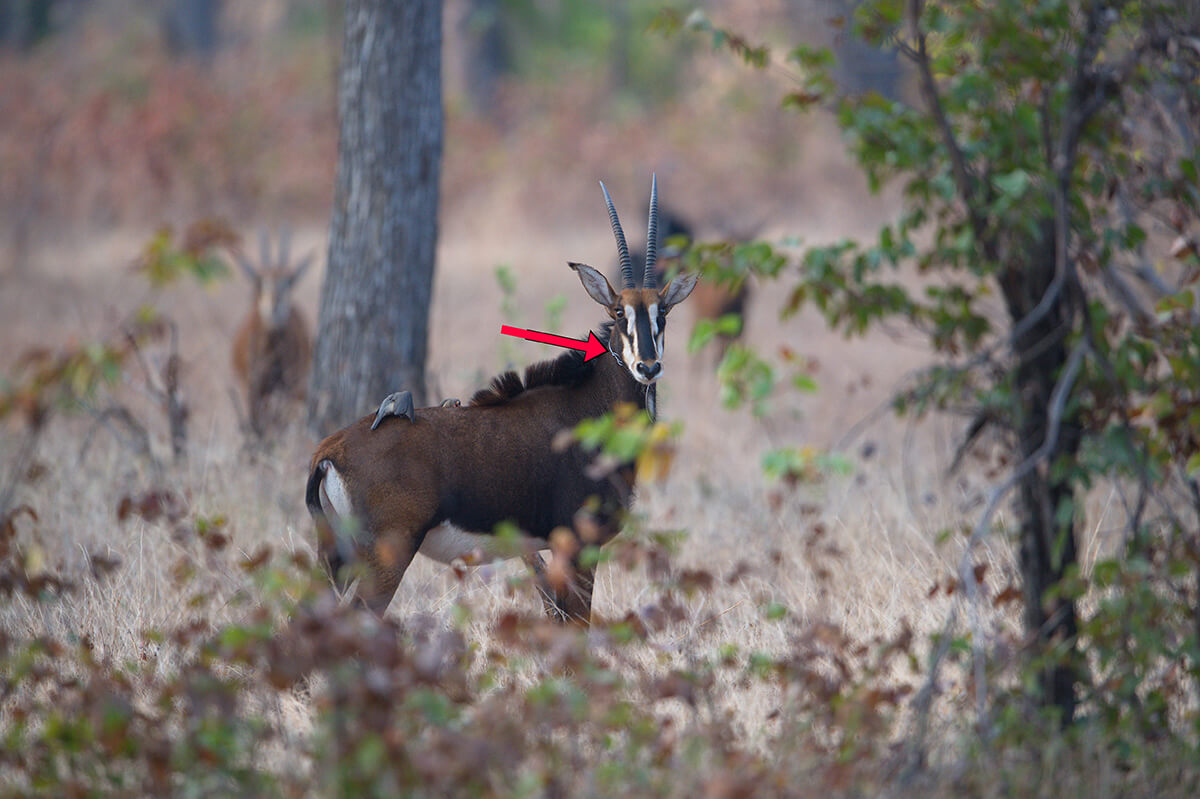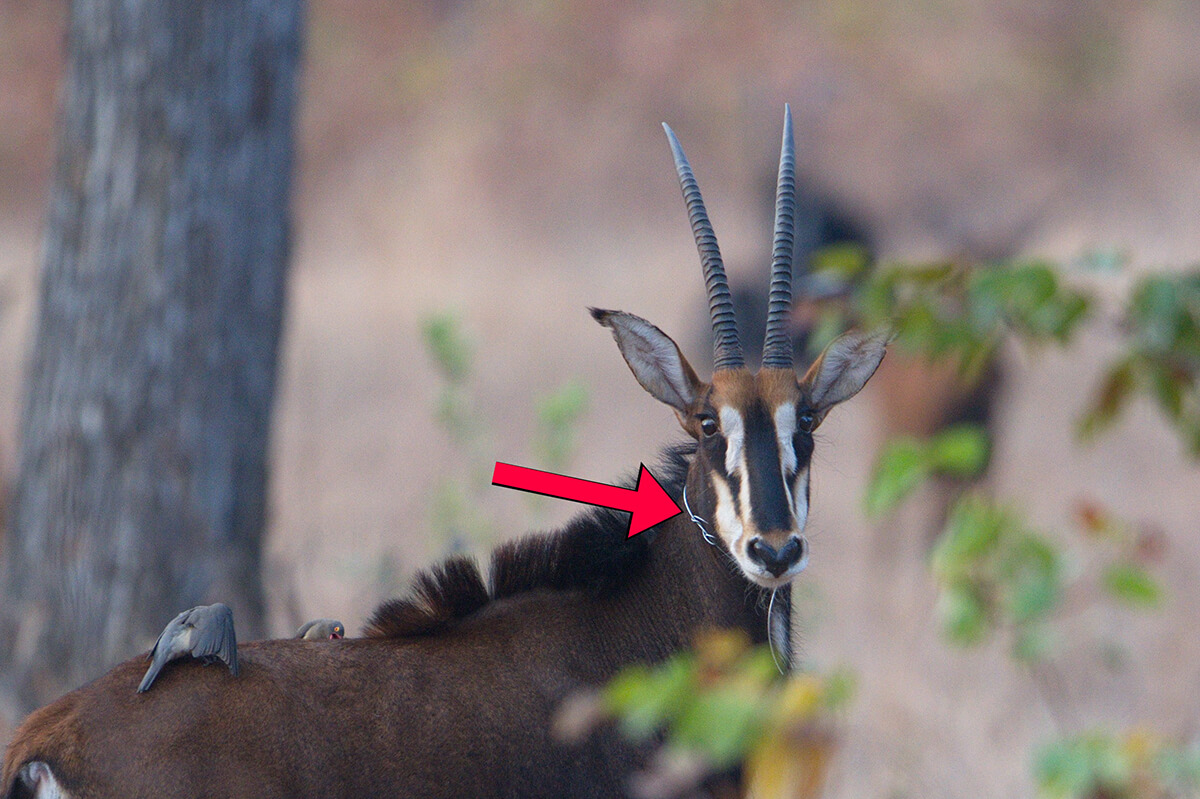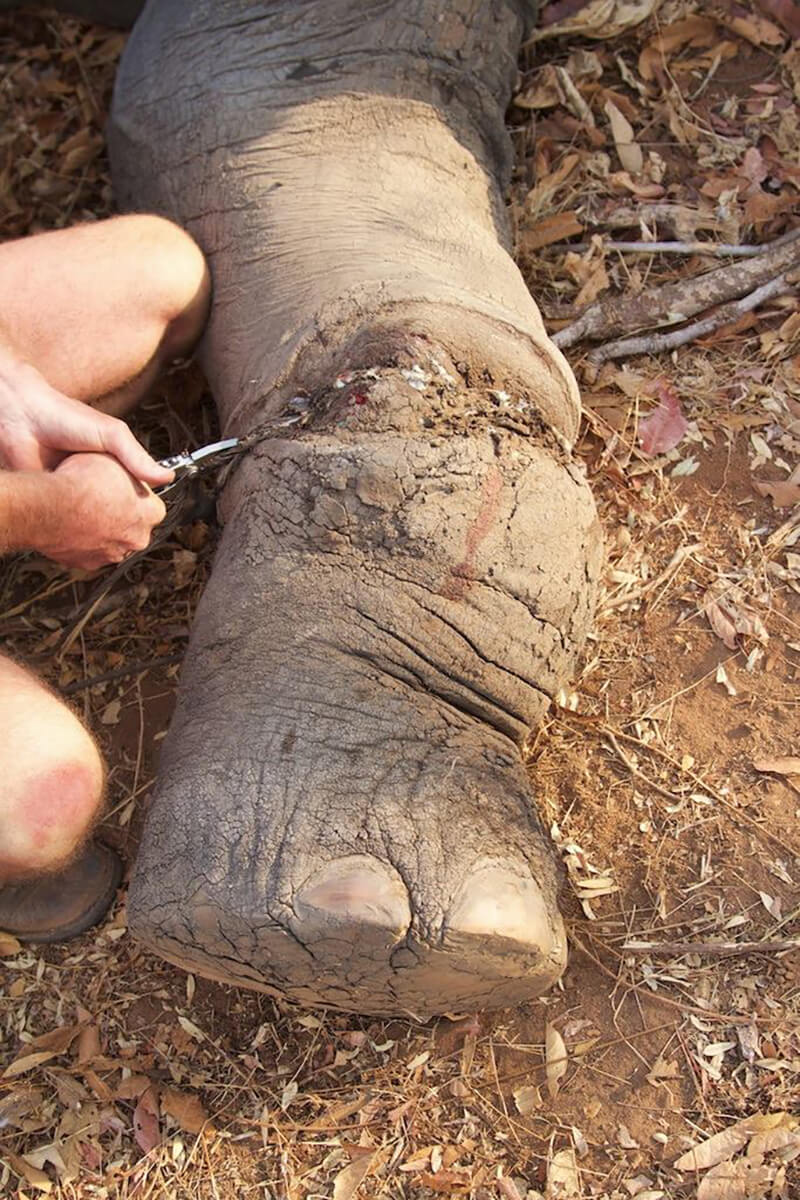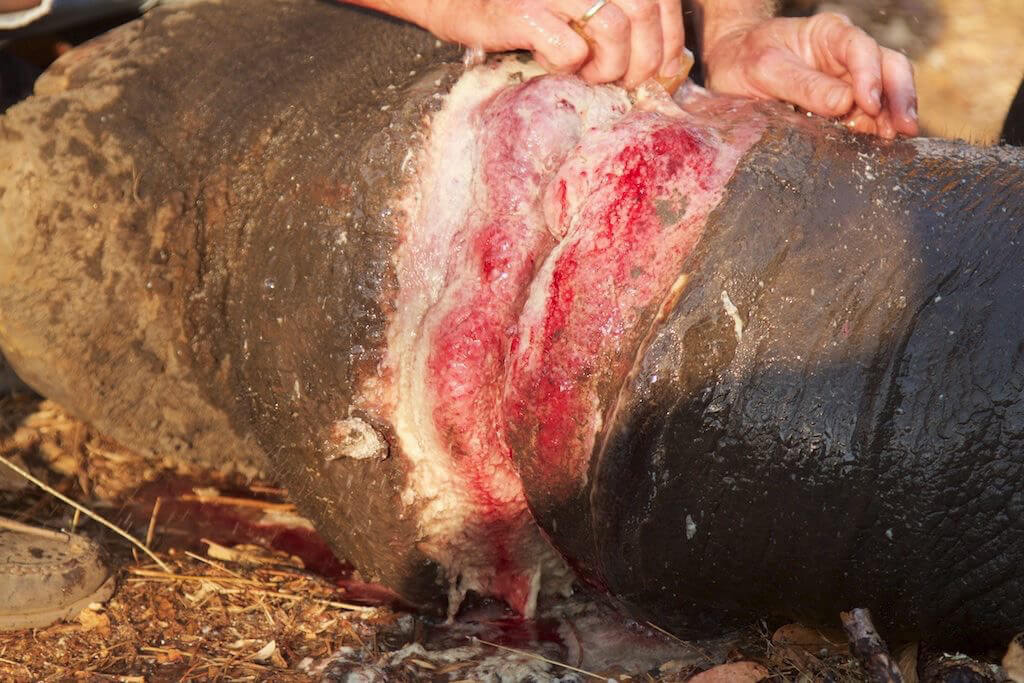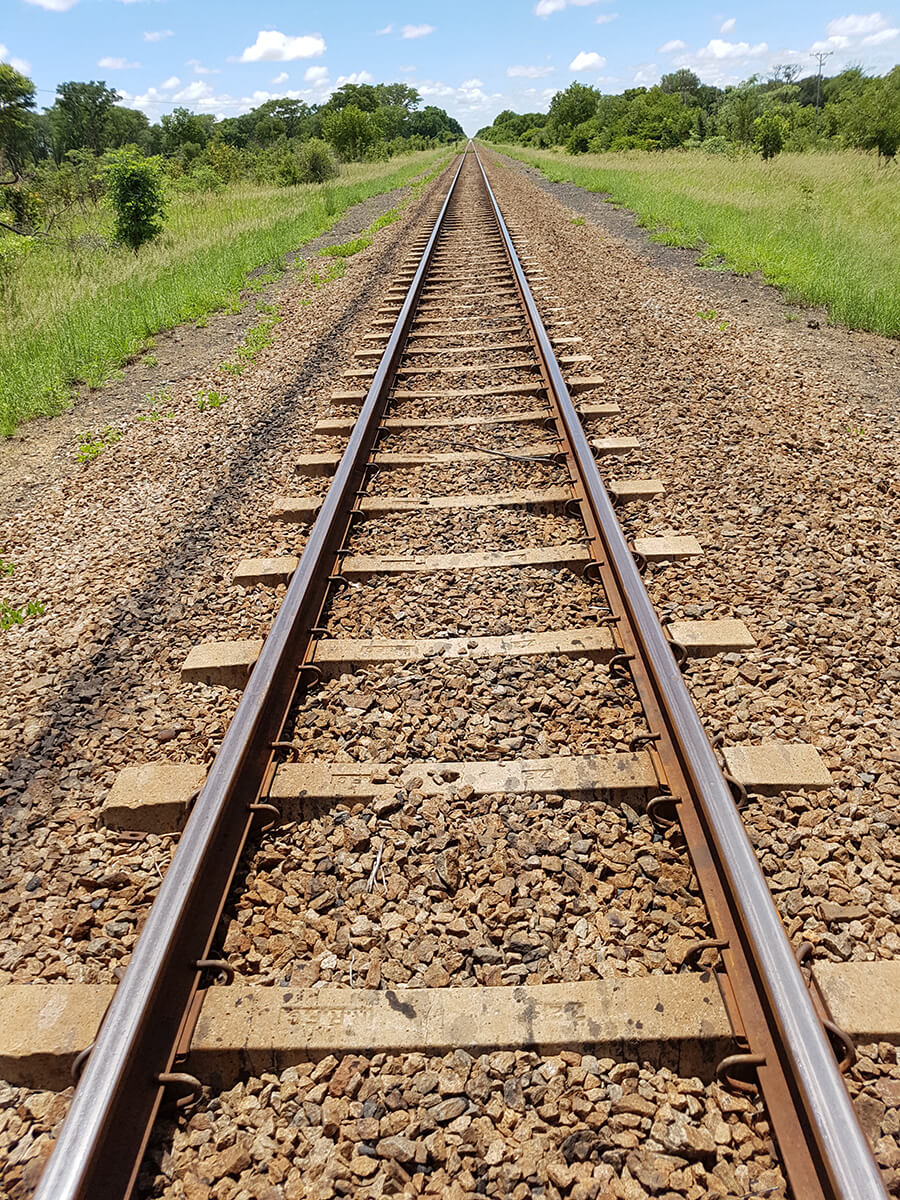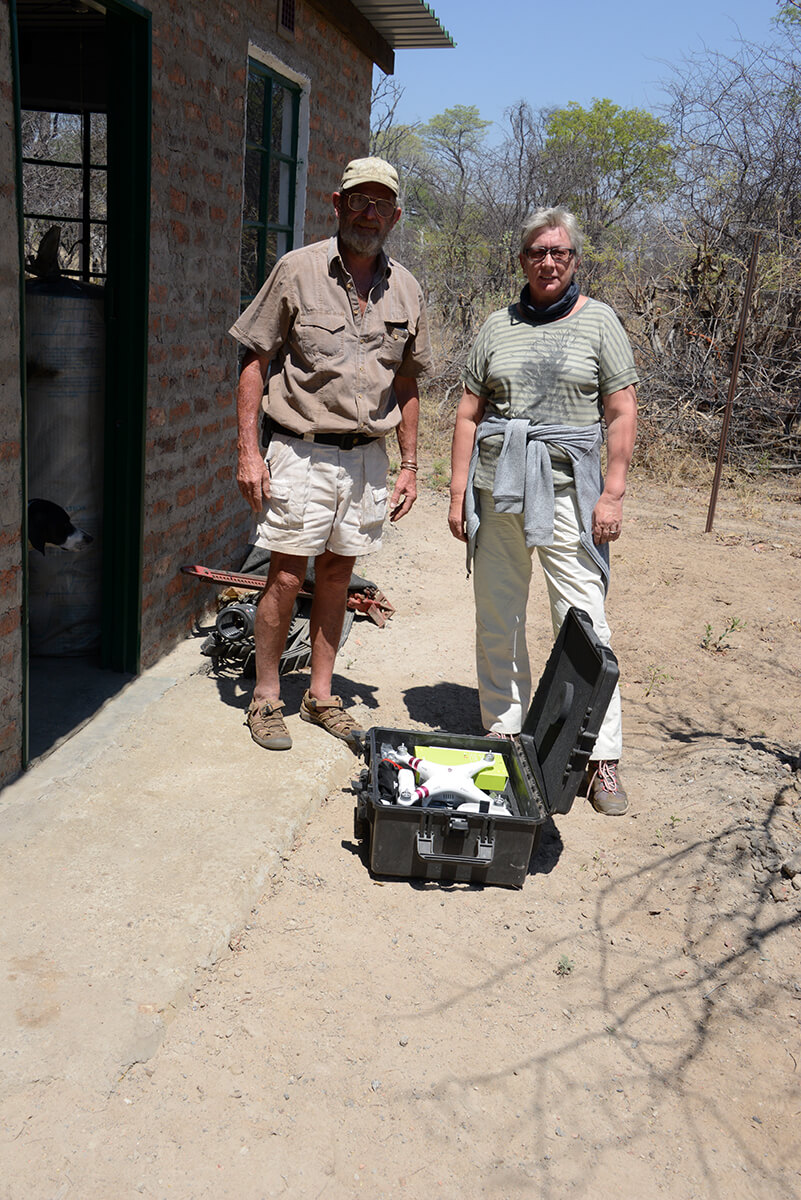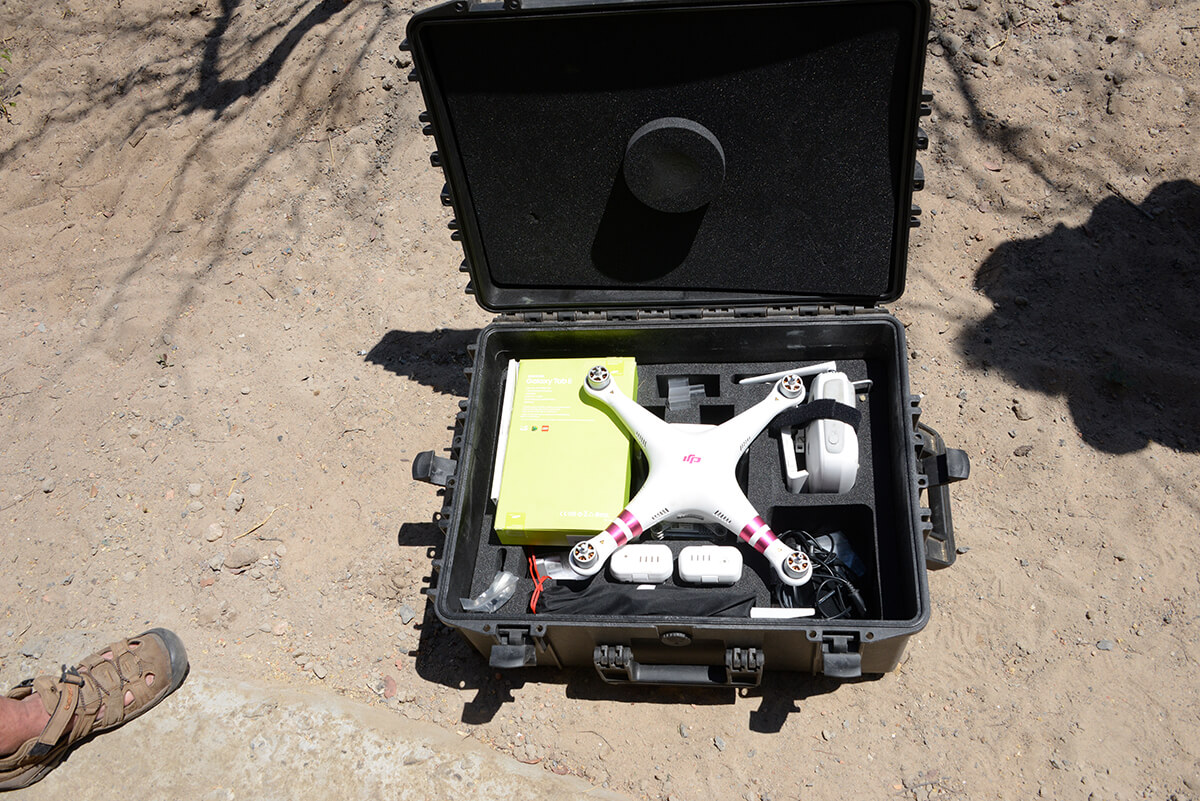
RbW-Flyer-2018
Founding of the society "NGO Saving Endangered Wildlife"
Another two families that have caught the Africa bug are the Wessolowskis and Schneiders from Kulmbach. They have been taken aboard our ship of sponsors and patrons and have already provided considerable support for our causes.
In order to channel activities and donations it became necessary to establish an association that can react swiftly and effectively to assist our fellow conservationists, game wardens and ranger in Africa without being hampered by red tape.
Eventually the Hennigs, Wesselowskis, Schneiders, Bärs, Füldners and Gerstberger along with other interested parties joined forces and founded the environmental society „Saving Endangered Wildlife“ ('Rettung bedrohter Wildtiere e. V.‘)
For years the team of the travel agency ‚Outback Africa‘ have been in love with things African and have been supporting our society with generous donations as well as providing us with practical travel advice.
In January 2017 the Hennigs were witnesses to a terrible scene that unfolded in the Somalisa Concession of Hwange National Park in Zimbabwe. Early one morning they found a magnificent elephant bull lying in his blood that had been shot six times by poachers. According to the local wildlife authorities he had already been shot and wounded 4 days previously and eventually succumbed to his wounds.
Now that the water supply within the Somalisa Concession is stable and ample year round, thanks to the well-functioning boreholes and wells, the main focus of our endeavors is the fight against poaching. Within national parks anti-poaching work is mainly done through rangers and game warden that are employed by the government. Much of their financial support is provided by WWF Germany. Nonetheless, poaching in these wilderness areas is still unacceptably high. This has led various lodge owners in the park, in collaboration with donors and well-wishers, to set up and equip their own anti-poaching unit (APU), which is a subdivision of the Conservation Wildlife Fund (CWF). The APU have started to patrol a section of the 10km-wide buffer zone surrounding the park and despite their small size, have already made some impact. They work closely together with rangers of Hwange National Park and their joint efforts have resulted in a noticeable reduction of poaching incidents. No shots directed at elephants have been recorded in this area since January 2017 (see report of 2nd April 2018).
We receive regular updates and reports by the Conservation Wildlife Fund (CWF) on how our donations are used. We can positively rule out that corruption will undermine our efforts as the yet small APU has proven to be very effective and is well-organized. Further, the Hennigs had a chance to get to know the leaders and managers of the APU personally during a visit to the concession in 2018, when they also received valuable information regarding the running of the project.
Special emphasis will now be given to battle snare poaching. Setting snares constitutes a very insidious form of poaching causing terrible injuries to the animals caught which often die an agonizing death in the process. During their visit the Hennigs came across a young elephant that had lost its forefoot in a snare and also saw a lion that had its leg amputated. In another instance, a roan antelope had become entangled in a wire snare but luckily enough managed to shrug it off (see red arrow in the picture). Frank Weitzer has provided us with some images that illustrate how a wire snare, deeply embedded in an elephant’s leg, was removed and the wound cleaned and treated by a wildlife vet.
With great pride the head of the APU, Steve Alexander, showed the Hennigs the wire snares that had been removed from the park by the APU in the last few months. A video-drone has also been sponsored by the Hennigs, which is now - during daylight hours -used to monitor the park boundary which runs parallel to the second-longest straight railway line in the world (114 km).
Our society has also funded the entire annual salary of one of the APU’s scouts and sponsored an elephant GPS-collar as well as three years’ worth of monitoring the animal (collar and monitoring amounting to US$ 5045).
Another huge problem lies in cyanid poisoning of elephants. Cyanid is relatively easily obtainable by poachers as it is used as an agent in leaching gold from surrounding bedrock in mining operations in the area.
Poachers have tampered with waterholes within and outside the park with the result that all animals drinking from these places, including elephants, have succumbed to internal poising within a very short period of time (see: www.tagesspiegel.de/weltspiegel/mit-zyankali-ans-elfenbein-22-elefanten-in-simbabwe-vergiftet/12503276.html).
Much effort has been directed to stomp out this horrible practice and several poachers have been apprehended, brought to justice and sentenced to long periods of imprisonment.
n order to further improve efficacy of the anti-poaching teams and to extend their current area of operation (the red-colored areas in google maps) more funding is needed (CWF Donor Project List 2018, APU Hwange Budget Year 1).
The APU have approached us with a request for funding the annual salary of one of their scout for another year in 2019. In addition, further financial assistance is needed for covering running costs for diesel and petrol as well as the procurement of another all-terrain vehicle. The latter would greatly facilitate the task of patrolling and monitoring the area as one vehicle is simply not enough for an area of this size.
Our society „Saving Endangered Wildlife“ will do their level best to procure funding for the afore-mentioned initiatives in 2019.
For more information see also: https://www.outback-africa.de/blog/2018/09/05/vom-touristen-zum-tierschuetzer
